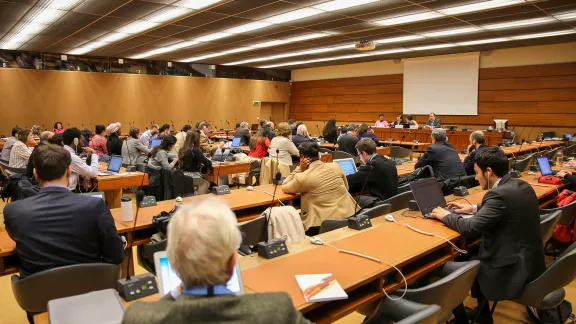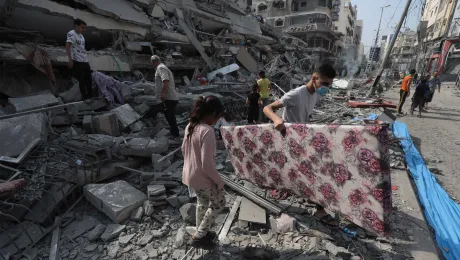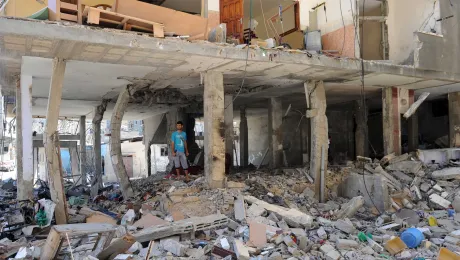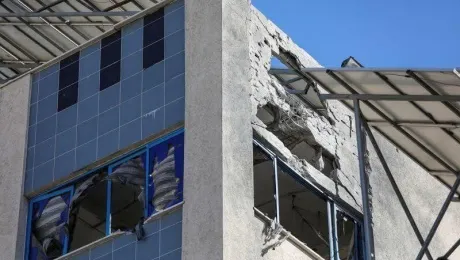
Attendees at a side event at the United Nations in Geneva on using the Universal Periodic Review as an instrument for peace building rooted in human rights in Colombia. Photo: Peter Kenny
LWF urges Human Rights Council to recognize key role of civil society in development and humanitarian assistance
(LWI) - The 47th session of the United Nations Human Rights Council (UNHRC) ended on 13 July, adopting resolutions which include a key commitment to protecting the “essential role of civil society” in the post-pandemic period. The Lutheran World Federation (LWF) has been working with other civil-society organizations to ensure that basic human rights and freedoms are respected, as governments seek to recover from the global COVID-19 crisis and to “build back better.”
During the UNHRC opening session on 21 June, the High Commissioner for Human Rights Michelle Bachelet noted that the pandemic has led to “a time of grave setbacks” including a rise in “poverty, inequalities and injustice,” and she warned that “democratic and civic space is being eroded.”
Alongside its partners Bread for the World, ACT Alliance and the Church of Sweden, the LWF has been advocating to ensure that governments recognize the positive role of civil society in development and humanitarian assistance, as well as in human rights promotion, especially at a time of increased challenges for the most marginalized communities.
Transparency and accountability
The resolution on protecting civic space in the post-pandemic period includes a call for greater transparency and accountability from governments, as well as greater protection for human rights defenders. It urges states to “acknowledge the important contribution of civil society, including human rights defenders, journalists and media workers, to the promotion of human rights and to ensure a safe and enabling environment for their work, both online and offline.”
LWF’s Advocacy Officer for Human Rights, Dr Emmanuel Gore, noted the vital role of faith-based organizations in bringing the voices of the communities they serve to this international arena. He said: “We also pushed for the importance of access to resources” for people hardest hit by the pandemic. He added: “We raised these issues during the consultations, but also through advocacy with diplomatic missions to ensure that our concerns were included in the final text of the resolution.”
During the three-week session, the LWF also submitted a statement on protecting the rights of religious and ethnic minorities in Nepal and another on stepping up efforts to combat rising violence against women. Together with other partners, the LWF contributed to a joint statement on establishing global funds for social protection to eradicate extreme poverty and provided input to the Council’s resolution on accelerating efforts to end all forms of violence against women and girls.
LWF/P. Hitchen


